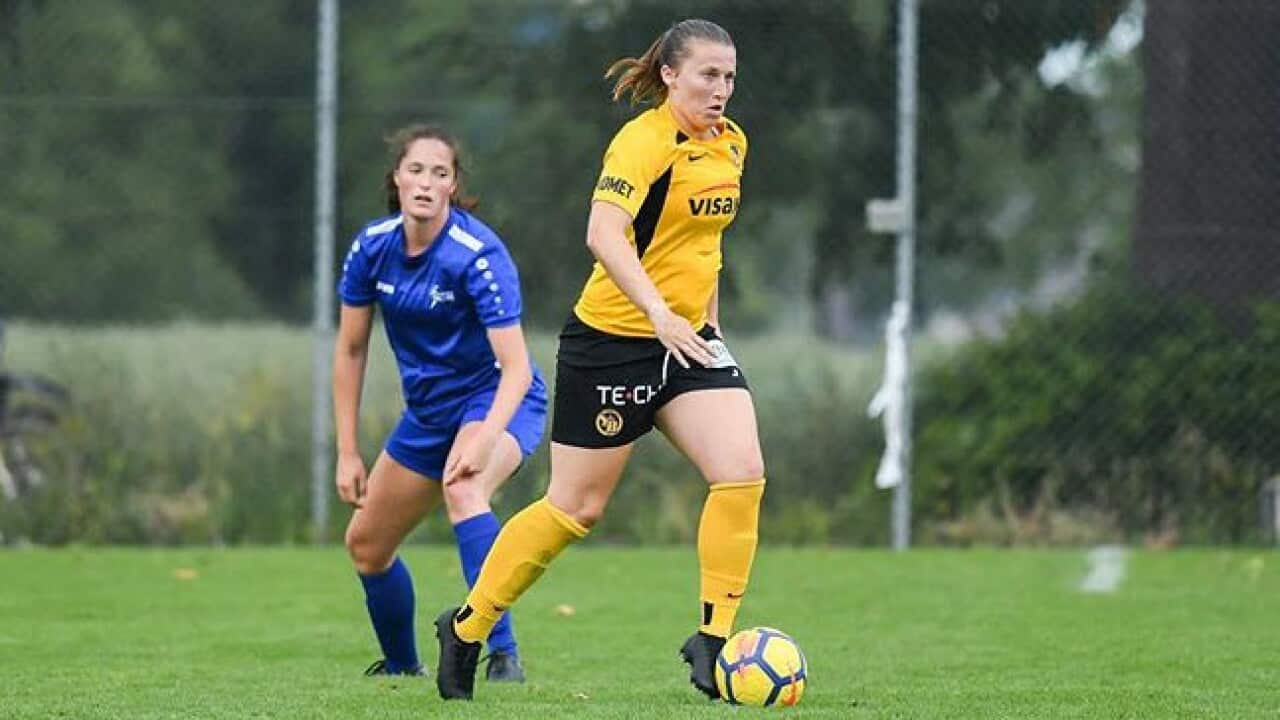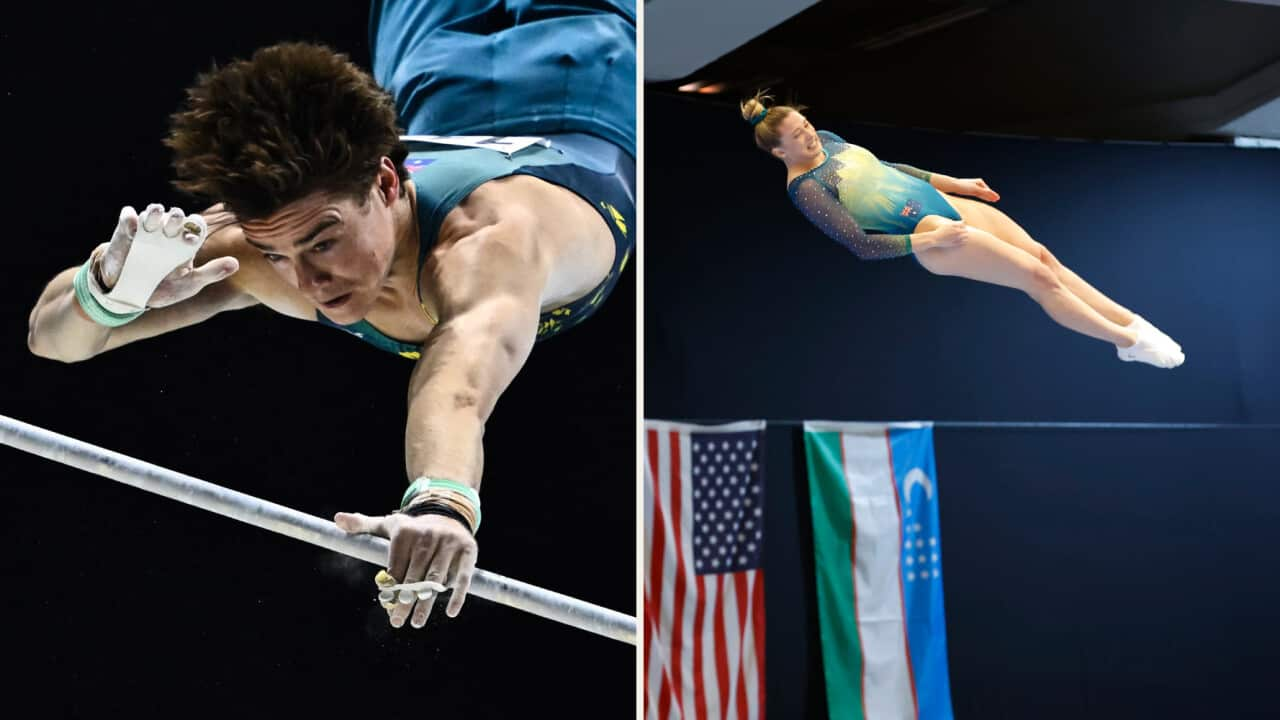In 2016, Gummer joined Doncaster Rovers Belles on a short-term contract while studying on exchange. The growth across the league since then, she says, has been “phenomenal.”
“I played in the Women’s Super League before it was pro,” Gummer told The World Game.
“I’m seeing how much it’s grown from when I was there – that was really, really cool, and I really enjoyed that experience.
“When I started, Chelsea were starting to recruit really heavily, and you could tell there was a huge gulf between the quality that Chelsea had, the standards, and the professional environment compared to my club.
“We were semi-funded by the men’s Doncaster team, but still, it wasn’t a huge amount. You definitely see, even at that point, the difference funding can make in the women’s game. Chelsea is obviously a big men’s club and in backing the women, I think they won almost everything that year.
“Watching it now, it’s grown so much. I wasn’t really paid that much, to be honest, but I didn’t really care because I was studying at the time. But now, everyone in the league is professional or getting a decent enough wage to live off. That’s been incredible to watch; the growth and the investment and the visibility of the league.”
Although Gummer only made a handful of appearances for Doncaster before returning home to complete her studies, it was enough for her to recognise that Europe was where she wanted to be – not just as a footballer, but also as a graduate with another blossoming career.
“As soon as I graduated, I knew that one of my goals was to always work overseas,” she said.
“With my old company back in Australia, they had international sites in Switzerland and Germany. They also had some in America, but I figured the pro system’s a lot more structured there and more difficult for foreigners to get in.
“I have a British passport so – for now – it’s useful. I knew Europe was where I wanted to be, and I figured I could balance both my football and playing overseas at the highest level I could possibly do.
“I played in the W-League on-and-off since the 2013-14 season. I knew that I wouldn’t be able to play for the rest of my life, so I wanted to do it sooner rather than later. I can actually still have a life over here where I don’t want to worry about making ends meet just because the league isn’t fully-professional.”
“Here” is in Bern, Switzerland, where Gummer now works as a validation engineer for an international pharmaceuticals company after graduating from Monash University with a double-degree in Science and Chemical Engineering.
As we’re speaking, a colleague sends Gummer an urgent email that she takes time out of the interview to answer – a fitting metaphor for the topic we’re discussing about how female footballers often must strike a balance between their professional and playing lives.
“It [illustrates] it perfectly; it’s a matter of balancing,” she laughs when I point out the symbolism.
“It’s a big problem for professional women – obviously we’re just starting to become professional, but the pay packets are not like the men’s – so I’m worried about, maybe in 10 years’ time when these players retire and need to work out what they’re going to do after football.
“For a long time, women have had to do both so they’ve already got everything sorted afterwards, but now there’s a more professional push and you see some younger girls just pursuing football from an early age where they wouldn’t have done so previously.
“So that’s one thing that I’ve always loved: what I’ve done outside of football. This way, I love that I can balance both at the end of the day. I’m exactly where I need to be.”
Her football is now played with BSC Young Boys, who she visited two years ago while holidaying nearby; her desired life easily accommodated by the semi-professional nature of Switzerland’s Nationalliga A division.
“I reached out to them on Facebook and explained who I was: ‘I play in the national league in Australia, I’m here for a few days, I was wondering if you had a training session or a match that I could come and watch?’
“The team manager messaged me and he’s like, ‘yep, we’ve got a game on Wednesday, it’s an hour-and-a-half drive away [but] if you meet me at this point at this time, I can drive you!’ So he picked me up and drove me to the match. I chatted to the coach, saw the game, and kept in touch with the manager for two years.
“He kept asking me, ‘what’s happening? Are you going to move yet? When are you going to move?’ and I think he was getting to the point where he was about to give up, but then I just sent him a message like, ‘hey, guess what? Guess who’s coming?’”
But like all the world’s footballers, COVID-19 threw a spanner in Gummer’s entry into Swiss football.
With pre-season under her belt – which included a training camp in Spain, a coaching change, and a crash-course in the difference between Swiss and High German – she played a single game before the league was shut down.
This was followed by a knee injury that kept her sidelined for the start of the 2020-21 season.
Despite the disruptions, though, women’s football in Switzerland – as it is all over the world – continues to improve.
“It’s kind of like the chicken-and-egg situation here,” she said.
“We didn’t really have a lot of coverage, but now we have our first big sponsor for the league – AXA – and they’re putting quite a lot of money into it.
“We’re getting a lot more visibility now, too, so we have certain games on TV – the SRF, which is equivalent to the ABC – and all our games are streamed live now, which is something that happened two weeks before the season started. So it’s really starting to grow.
“Once we get the visibility up, I think the push for [full] professionalism will come. I see it’s hard for a lot of the girls because they’re studying and they can’t work full-time and study and play.
“It’s like what it was in Australia when I first started playing: we weren’t really getting paid a huge amount of money and then, all of a sudden, you see that we start to get a bit more funding, a bit more visibility, then hopefully it grows from there.”
While she has long-term aspirations to enter into coaching – particularly junior girls, having already obtained her B-License – Gummer is satisfied with the balance she’s struck in Switzerland and plans to stay there for some time.
“I’m really happy with where I am now,” she said. “The girls are great, the team’s great, my work is great. I’m learning so much. And I love living in Europe because it’s central; everything is so close. I’m going to Milan tonight to visit Natasha Dowie and it’s like a three-hour train ride from here.
“I was only supposed to be here for 12 months but it’s looking like another 12 months. Then I think I’ll stay a little bit longer; my goals are to stay playing at the highest level I can as long as my body can take it.
“And hopefully I can encourage some girls to continue to study or plan for life after football because unless you’re Sam Kerr or Alex Morgan - those are the players who may not have to worry about it so much afterwards. But for every other player, after they finish playing, they have to start again.
“As far as Matildas go, it’s always something you’re like, ‘oh yeah!’ Obviously I’d love to do it, but realistically, it’s probably not within my reach.
"I’m 28 now and I think to be a Matilda these days, you have to focus fully on football. That’s something I don’t think I want to do; I know that I can do both whilst living here and enjoying it. So I think that’s where it’s gonna take me.”










